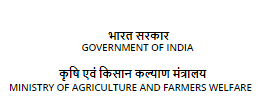Tamarin Plus: Complete Feed Block for Reducing Enteric Methane Emission
Background:
Methane is a potent greenhouse gas that has 25 times more global warming potential than carbon dioxide. Enteric methanogenesis is an integral but inefficient pathway that removes metabolic hydrogen from the rumen. In addition to global warming, rumen methanogenesis is also held accountable for 8-12% loss of feed energy. Globally, livestock emits about 80-90 million metric tons methane per annum due to fermentation, wherein the contribution of Indian livestock is 9.25 million metric tons. Under the prevailing critical gap between energy requirement and availability for livestock, the reduction in methane emission can bridge this energy deficit to some extent and improve the livestock profitability. ICAR-National Institute of Animal Nutrition and Physiology, Bengaluru is continuously involved in developing farmers’ friendly enteric methane ameliorative strategies for different regions of the country. The scientists aim to develop strategies that demand minimum inputs for tackling methane emission and also improve livestock productivity.
Technology Details:
Based on the systematic studies, the institute has developed a complete feed block ‘Tamarin Plus’, enriched with tamarind (Tamarindus indica) seed husk as methane mitigating agent. Tamarind is grown in more than 50 countries in the world with major production in Asia. India alone annually produces more than 98 thousand metric tons of tamarind. Tamarind seed husk, an agricultural waste constitutes about 35% of the decorticated roasted seed. The tamarind seed husk contains 13-15% tannins and very effective in the modulation of rumen fermentation. Tamarind seed husk is adequately available from the seed starch extraction/processing units and it contains an appreciable amount of condensed tannins (up to 15%). A team of scientists headed by the Director evaluated the various levels of tamarind seed husk for the impact on methane emission and optimize the level of inclusion in the diet. Further studies carried out in cattle revealed that the feeding of ‘Tamarin Plus’ decreased enteric methane emission by 20% without any adverse effect on the feed intake and nutrient digestibility. The product is can be fed to any ruminants above 4 months age and do not have any health or productivity implications while fed to growing, lactating or breeding animals. This technology has recently been patented (Indian Patent no. 338616). Feeding of ‘Tamarin Plus’ with an achieved reduction of 20% can curtail the annual enteric emission by 7.5 million metric tonnes from Indian livestock. This methane reduction is equivalent to 50 million metric tonnes of carbon dioxide emission. Further, the biological energy saved from less methane emission can be utilized by the livestock for productivity enhancement. A recent estimate by this institute predicts that 23 million metric tonnes additional milk can be produced with spare energy.


